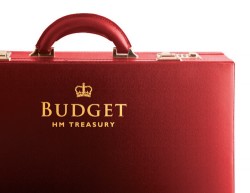Today you will…
...Take part in activities to help you understand that budgeting involves making decisions about a finite quantity of money prioritise and decide spending areas understand that spending in one area affects spending in another.
Discussing money matters can be uncomfortable at the best of times; getting to the heart of the issue with a group of teens, already increasingly conscious of the implications of financial disparity within their peer group, has the potential to be unproductive at best and explosive at worst. This lesson aims to help pupils gain a practical understanding of how budgeting works, by running their own country. As they plan and discuss, they’ll see how the finite pot of money needs to be shared fairly and sensibly – a simple but effective message that they can translate back to their own personal circumstances through further home learning.
Starter activity
‘Getting a slice of the pie’
Divide the class into groups, and give to each one a large circle of paper, a pair of scissors and a marker pen. Explain that the circle of paper represents the budget for their school. Students need to work together to decide the kinds of things the money needs to be spent on, and how it should be divided. They cut the ‘pie’ into differently sized slices – the larger the slice, the more money it represents. They write their categories on the ‘slices’ with the pen.
• What categories have they chosen?
• Has anything important been missed out?
• How did they decide how large to cut the slices?
Main activities

1. Counting beans
In small groups, each group is given a government department of an imaginary country. They are shown a large container of dried beans, and it is explained that this represents the sum total of the country’s budget. They are to come up with a convincing argument for why their department should be given funds from the country’s budget. Each group appoints a spokesperson, and they listen to each department’s arguments. After all the arguments have been heard, a container is placed on each group’s table. The teacher pours out the beans to each group until the class calls out stop (at a high enough volume!) Once the beans have been divided, allow some time to discuss whether the class believe they’ve been divided fairly. If necessary, allow some beans to be scooped into a different container.
Suggested Government departments
• Education
• Crime
• Defence
• Pensions and benefits
• Health
• Government
• Environment
• Transport
2. Taking the tough decisions
In small groups, each group names its own country and becomes that nation’s government. Members of each group take on a department per person, and every group/country is given 50 dried beans. It is explained that this is the budget for their country, and that this is the total amount they have to spend.
They divide it up between themselves, deciding how to share the budget between their departments fairly. Suggested government departments are given on the previous page.
At various points in the activity, a news flash is given out, and they will have to adjust their budgets accordingly to accommodate the new state of affairs.
News flashes
• The coldest temperatures for ten years are predicted this week (will affect health and transport budgets)
• There’s been a natural disaster somewhere else in the world (will affect the government’s budget for foreign aid, and possible the defence budget too)
• The conflict is escalating in XXXX and the UN has asked for more troops to assist
• Global recession is seeing a record number of unemployed (will affect pensions and benefits)
• Fossil fuels are running out; new energy sources need to be developed urgently
• A new report has shown that children are leaving school without basic levels of literacy and numeracy.
• Knife crime has risen by 20% in the past five years It’s now the end of the year. They need to feed back to their citizens how the budget was spent.
Collate the results from each group, and discuss any similarities and differences. How did they decide where the money was to be spent? How did the news flashes affect their decisions?
Home learning
• Ask students to use a paper ‘pie’ to show the spending priorities for their personal money. As it is pictorial and not numeric, this should allow learners to compare their spending patterns on a more equal basis.
• Watch the news and see how often references to the government’s budget come up.
• Find the twitter feeds for government departments eg. the treasury- @HMTreasury, Health- @DHgovuk, Education- @educationgovuk and see how they make a case for their own importance, and need for a larger slice of the pie.
Summary
Remind the pupils of the paper ‘pies’ at the beginning of the lesson. Show them the pot of beans. We could represent this as a larger pie; the principle is exactly the same. There is a finite amount of money, and we needed to work out how to share it fairly and sensibly. If one area gets more, then another will necessarily get less. The same applies with budgeting our own money. We need to prioritise our spending in order to make the best use of our funds.
To see the decisions made by our government last year, show the bubble chart on wheredoesmymoneygo.org. Are the decisions they made similar to the ones students have made?
Info bar
Additional resources
wheredoesmymoneygo.org for visual representations of how tax money is spent
hm-treasury.gov.uk/2011budget_easyread.htm
Annual income twenty pounds, annual expenditure nineteen six, result happiness. Annual income twenty pounds, annual expenditure twenty pounds six, result misery.’ Mr Micawber in David Copperfield, Dickens.
Stretch them further
Adjust game 2 so that some groups/countries are given a bigger budget/more beans than others. It will become obvious that if you are a country with a smaller budget, then a crisis news flash may well mean that you have to make some drastic cuts in order to cope with the changing situation. How does this play out on the real world stage?
About the expert
Rachel Summers believes there’s nothing more fun in teaching than creating opportunities for pupils to discover new knowledge for themselves. She enjoys playing around different ideas with pupils of all ages, and is especially happy when the results surprise them both.








